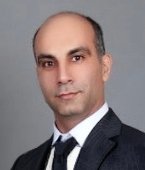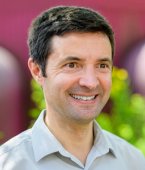A F2F course of the EO AFRICA R&D Facility will take place in Kigali, Rwanda, in close cooperation with the World Climate Research Programme Open Science Conference 2023 (WCRP OSC).
The course will take place 17-21 October, the week prior to the WCRP Open Science Conference (WCRP OSC), which will take place in Kigali on 23-27 October 2023. The conference aims to bring together communities from around the world with the major goal of bridging science and society. Climate risk, early warning, attribution, uncertainty, tipping points, irreversibility, and abrupt climate change, as well as the fundamental science that is critical to advancing these important topics.
Participants in the F2F course are strongly encouraged, although not required, to submit an abstract for the WCRP Open Science Conference. The Abstract Submission Portal is open until 14 March 2023, on the Conference Website, together with application and eligibility criteria for financial support. The financial support for the WCRP OSC may cover travel to Kigali and expenses for the period of the WCRP OSC (23-27 October 2023). Financial support provided by WCRP will not cover accommodation expenses for the week of the F2F course of the EO AFRICA R&D Facility.
Participants not intending to participate in the OSC can still apply for the course. Limited grants up to 210 Euro are available for them.
Please note that while it is not a requirement, priority for this course will be given to participants who also plan to attend and have an abstract accepted by the WCRP Open Science Conference.
This course introduces participants to Cloud Computing and its usage for Earth Observation (EO) data analyses. It starts with big geospatial data concepts and extends to Cloud Computing as one of the solutions for solving the problems of big EO data. The EO AFRICA Facility Innovation Lab will be introduced as an example of a cloud computing platform for working with EO data. We will cover Jupyter Notebooks and JupyterLab as the proper solution for developing analytical procedures accompanied with documentation on cloud computing platforms. In the next step, the course focuses on some of the Python libraries to develop programs that handle and analyze EO data. We will explain how participants can programmatically access different EO datasets using online catalogue services and DIAS platforms on the Innovation Lab and utilize the data in their algorithms.
Upon completion of this course, the participant will:
- Define Cloud Computing and explain the benefits of using Cloud Computing for EO Analysis,
- Compare different cloud computing platforms,
- Work with Innovation Lab (the cloud computing platform provided by the EO AFRICA R&D Facility),
- Work with important Python Libraries for processing EO data,
- Implement processing procedures as interactive Jupyter Notebooks on the Innovation Lab,
- Load and Process EO data from DIAS platforms using Python.
CLOUD COMPUTING AND ALGORITHMS FOR EO ANALYSES
CAN I APPLY?
Who can participate?
Space is limited to max. 25 Participants. Participants will be selected on the basis of their academic background, work experience and motivation to participate. If you are selected you will receive a confirmation e-mail with further information.
Participants should reside in one of the African countries, should have an academic background related to Geoinformation/Earth Observation Science in combination with knowledge on Water Resources Management, Irrigation, Agriculture or similar, Young researchers in this field are encouraged to apply!
Speakers:
-

Assistant Professor – Department of Geo-information Processing, Faculty ITC of the University of Twente
https://people.utwente.nl/m.farnaghi?tab=about-me
m.farnaghi@utwente.nl -

Senior Reseacher – Head of the Center of Expertise in Big Geodata Science (CRIB) – Faculty ITC of the University of Twente
https://people.utwente.nl/s.girgin?tab=media
s.girgin@utwente.nl
Registration:
Schedule
Each day will consist of morning and afternoon sessions with total duration of 6 hours. The sessions will focus on the introduction to the general set-up of the EO AFRICA R&D facility, introduction to the cloud computing environment, Jupyter Notebooks and JupyterLab for interactive computing, use of Python libraries for retrieving EO, access to EO data on the Innovation Lab through DIAS platforms and dedicated libraries.
- Morning session: 9:30 – 12:00 – 2.5 hours.
- Lunch break: at 12:00 – 13:00.
- Afternoon session: 13:00 – 16:30 – 3.5 hours.
Certificate of Attendance
All participants who will complete the course and have actively participated, will receive a Certificate of Attendance issued by the EO Africa R&D Facility.
Technical requirements
Participants are requested to bring their own (updated) laptop.
It is strongly advised that the participants follow the first 2 On-line courses of the EO AFRICA R&D Space Academy ("Cloud Computing and Algorithms for EO Analyses" and "Principles of and advances in Earth Observation"). The courses are currently closed but participants will get access upon acceptance for this Face to Face course.
Cost
Attendance to the training course is free of charge.
Participants who are also the presenter of a selected poster/abstract could be eligible for financial support. Note that subsistence allowance will only be give for the duration of the Conference – not for the course!
Participants will need to arrange and pay their own travel, subsistence and accommodation. Lunch will be provided during the workshop. The Facility can sponsor up to EUR 210 (including bank transfer cost) to cover such expenses. Should you want to apply for this funding, please indicate it in the application form.
